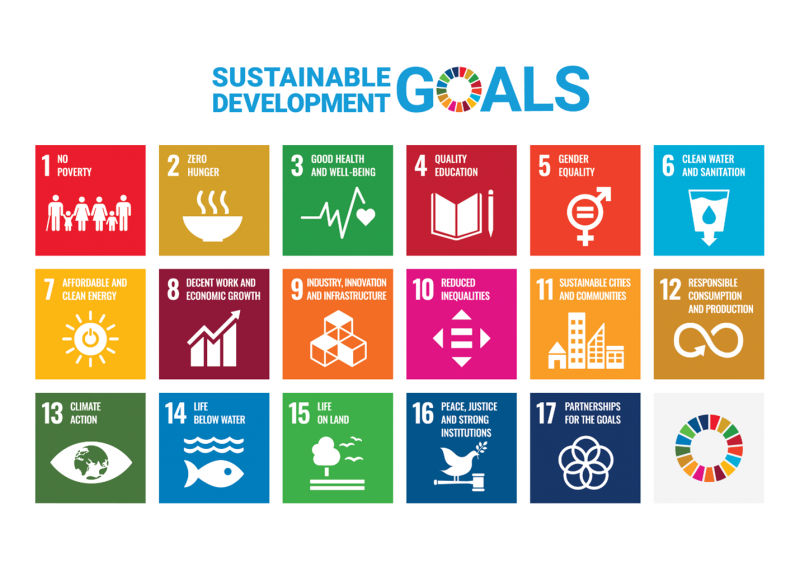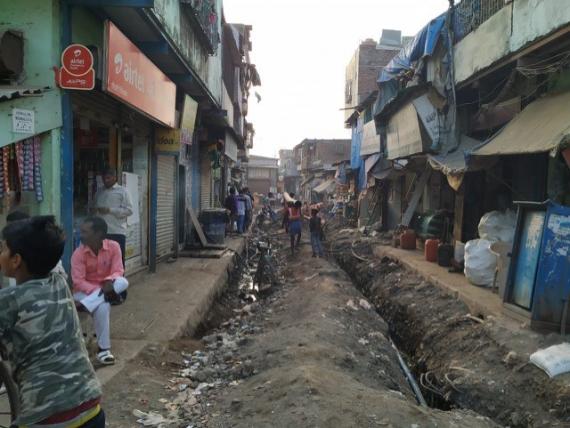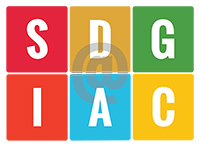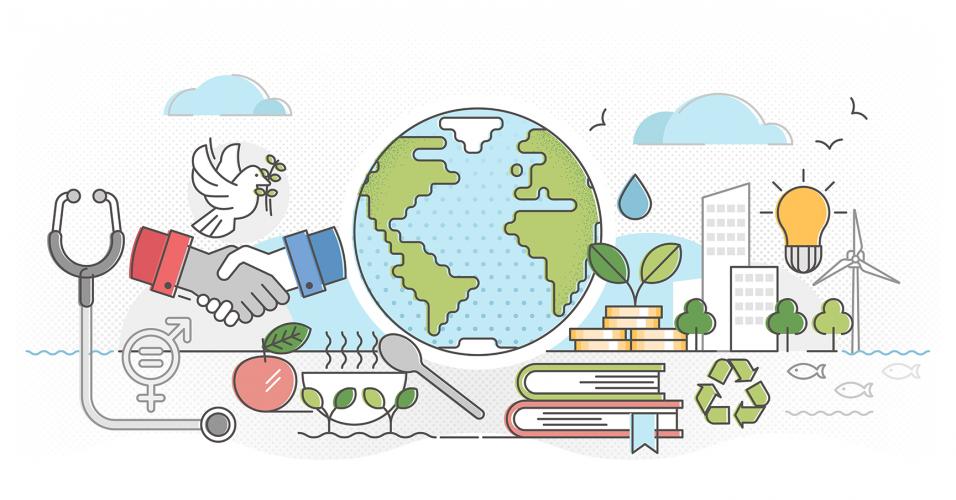Editor’s note: This is the first in a series of stories over the next three weeks examining Ivan Allen College’s work in areas related to the United Nations Sustainable Development Goals.
Assistant Professor Omar Asensio’s doctoral studies combined engineering and economics. He works in a public policy school, using big data analytics to discover new ways to design economic incentives and policies for sustainable development.
His work — which bridges the disciplines of public policy, economics, engineering, and computing — is but one example of the many ways in which faculty and students in the Ivan Allen College of Liberal Arts are working to bring integrated solutions to the kinds of pressing problems the United Nations hoped to help solve six years ago with its Sustainable Development Goals. The goals are a set of 17 declarations meant to guide a global conversation about building a world with greater shared prosperity and a secure, sustainable future for all life on the planet.
No poverty. Zero hunger. Climate action. An end to inequality. Peaceful, just, and strong institutions. President Ángel Cabrera last year made the goals a central part of Georgia Tech’s defining purpose: to develop leaders who advance technology and improve the human condition.
“In my view, certainly, the Ivan Allen College of Liberal Arts is on the leading edge of that conversation,” said Asensio, an assistant professor in the School of Public Policy.

The UN Sustainable Development Goals
The SDGs at Ivan Allen College: Advancing Sustainability, Equality, and More
Asensio is right. While he has been working to deploy big data techniques to help reveal the hidden benefits of energy efficiency improvements from housing investment policies to the advantage of Georgia’s underserved communities, his Ivan Allen College colleagues have been hard at work pursuing other lines of inquiry.
For instance, in the Sam Nunn School of International Affairs, Professor Brian Woodall, Associate Professor Mariel Borowitz, and several students are working on the Sustainable Megaregion Research Project — an effort to use geospatial data analysis to understand the implications of sustainability-related policies and actions in the megaregions of Boston-Washington, greater Tokyo, and the Amsterdam-Brussels-Antwerp triangle (SDGs 2, 7, 11, 13, and 15).
In the School of Economics, Matthew Oliver and others recently published a study seeking to explain better the impact of trade liberalization on the gender pay gap (SDG 8) while recent research from Shatakshee Dhongde looked at the disparate impact of Covid-19 on Hispanic workers (SDGs 1, 2, 8, and 10). In the School of History and Sociology, Allen Hyde is working with Yanni Loukissas in the School of Literature, Media and Communication to study the social and physical vulnerabilities of disadvantaged coastal Georgia communities and how environmental disasters such as sea-level rise, hurricanes, or a pandemic can affect those communities’ ability to rebound and be resilient (SDGs 10, 11, 13, and 15). Kent Linthicum, a Marion L. Brittain Postdoctoral Fellow in the School of Literature, Media, and Communication, is working on a book that views fossil fuels, slavery, and environmental justice through the lens of media studies and history (SDGs 7, 11, and 13).
The School of Modern Languages is working on initiatives such as Race Beyond Borders and efforts to develop a peace education initiative among Atlanta universities (SDGs 4, 10, and 16). Back in the Sam Nunn School, Assistant Professor Anjali Thomas is in the midst of a long-running quantitative study seeking to understand the role of civil society organizations in providing precious water to disadvantaged residents of Mumbai (SDGs 1, 5, 6, and 10).
“The Nunn School and the liberal arts, in general, have a significant role in shedding light on these challenges because, frequently, the challenges are not technical, or they’re only partially technical,” Thomas said. “And the question for me, as a political scientist, is why it is that the most logical or most efficient, or best thing often does not happen in practice. Often the answer is broadly, politics.”
And that means understanding the human dimensions of these problems is often at least as important as the solutions — something at which the faculty and students in the Ivan Allege College excel.
“It is deeply important to understand that while many of SDGs seem like all they would take are shifts in policy or technology, the reality is that advancing them will require changing cultures and societies,” said Linthicum, the Brittain Fellow. “In the Ivan Allen College, we research people and policies to understand how to achieve those changes, and we provide students the tools they need to understand culture and society.”
This is not to say the SDGs are perfect. Debates are commonplace over the inherent tension between the economic and social imperatives contained in the goals, among other shortcomings. But they do provide an essential way of helping define and organize priorities that are particularly relevant to a college dedicated to the social sciences and humanities.
“The SDGs are really helpful because they are not seeking to address these enormous issues we are facing through one lens or discipline, or one approach, methodology, or political frame,", said Anna Stenport, chair of the School of Modern Languages and founding co-director of the Atlanta Global Studies Center, whose research has examined issues related to SDGs 4, 5, 10, 11, 13, and 15- 17.
"It’s looking at these issues in an integrated way," said Stenport, who is also co-lead of the “connect globally” working groups for Georgia Tech’s Strategic Plan and Research Next.
It all adds up to an impressive body of work tackling the most pressing issues of our time, grounded in the findings of the Research Next Phase One report, which notes the need not only for technical solutions but “frameworks to translate values into action.”
“What is important about our approach to these issues is we don’t just talk about them,” said Dean Kaye Husbands Fealing, an economist who has studied ways to increase the participation of women and minorities in STEM education and jobs (SDGs 4, 5, 8, 9, and 10). “Whether you are talking about green energy policy or gender and racial equality, economic innovation or health and well-being, faculty and students in the Ivan Allen College are engaged in rigorous, often interdisciplinary, research that can make a difference and help advance the human condition.”

Water pipes being laid in an informal settlement in Mumbai, where Associate Professor Anjali Thomas as her colleagues have been conducting a study evaluating the impact of various interventions on the ability of disadvantaged residents to obtain access to clean water. (Photo courtesy of Anjali Thomas)
A Special Series on our Sustainable Development Goal Work
Over the next two weeks, we will be presenting “SDG@IAC,” a special series of stories showcasing some of that work.
 Today, we will begin with a look at some of the work our faculty and students are doing related to economic issues, health, and well-being (SDGs 1-3 and 7-10). Among other work, we will introduce you to research from School of Economics Ph.D. student Vikrant Kamble, who is studying the impact of pollution on the lives, livelihoods, and well-being of married couples in India — work that examines issues related to poverty, hunger, good health and well-being, gender equality, and decent work.
Today, we will begin with a look at some of the work our faculty and students are doing related to economic issues, health, and well-being (SDGs 1-3 and 7-10). Among other work, we will introduce you to research from School of Economics Ph.D. student Vikrant Kamble, who is studying the impact of pollution on the lives, livelihoods, and well-being of married couples in India — work that examines issues related to poverty, hunger, good health and well-being, gender equality, and decent work.
- On Wednesday, the day before Earth Day, we will turn our attention to the environment and sustainability (SDGs 6-7 and 11-16). You will learn about the work of students and faculty seeking to answer crucial questions about the future of green energy, energy equity, and more, and delve more deeply into projects such as Linthicum’s upcoming book about the ways in which media helped spur the adoption of both coal, and slavery.
- On Monday, April 26, we will examine issues related to peace, justice, and equality (SDGs 5 and 16). We will discuss work as varied as that of Professor Michael Best and Dean Kaye Husbands Fealing and their inquiries into gender equality in STEM fields, and that of Assistant Professor David Muchlinksi, whose groundbreaking work using machine learning to improve the ability to predict civil violence seeks to use data science as a powerful tool for peace and strong institutions.
- Our fourth story, debuting May 3, will examine the courses and degree programs where questions of economics, sociology, literature, languages and cultures, international affairs, and public policy intertwine with the Sustainable Development Goals in sometimes surprising ways (SDG 4, quality education). You will learn about courses such as LMC 3432/CS3311, where students team with nonprofits and community groups to develop software to help solve ecological, economic, and social sustainability issues; INTA 4645/6745 ICTs and Global Development, where students learn about the challenges faced in designing technologies towards global development; and degree programs like the Master of Sustainability and Environmental Management and the new Global Development certificate.
We’ll wrap the series up on May 5 with a story that seeks to answer the question, “Where do we go from here?”
Throughout the next two weeks, we’ll also feature faculty and students conducting SDG-related research with special shout-outs on our social media channels, so be sure to check us out on Twitter, on Facebook, and on Instagram.
And if you miss something, don’t worry! You can catch up with all the content on our project website, https://iac.gatech.edu/sdg.
We don’t want this conversation to be one-sided. We want to hear what you have to think, too! While you are waiting for our first story, head on over to Twitter or Facebook and join in the conversation: What do the Sustainable Development Goals mean to you? Tag us on Twitter at @GTLiberalarts and use the hashtag #SDGatIAC.

